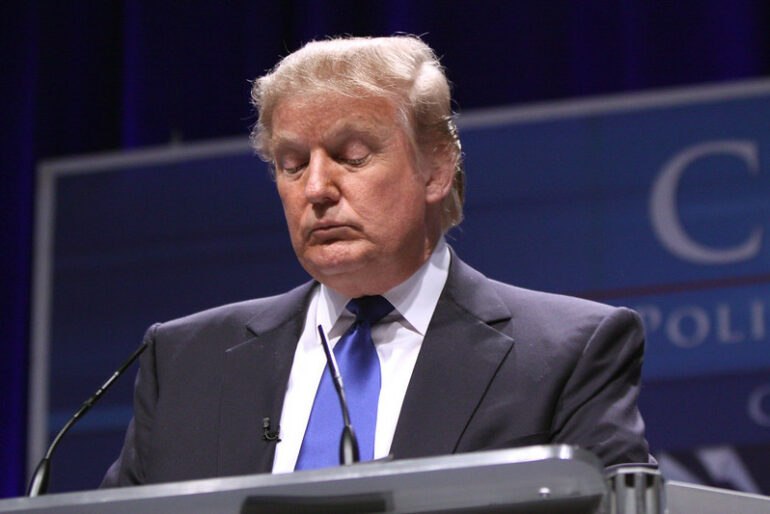President Donald J. Trump’s latest attempt to strengthen law and order through executive action has now reportedly sparked debate not only among Democrats but also from within conservative circles.
On Monday, the president issued a set of executive orders aimed at tightening criminal enforcement, including a measure that seeks to penalize those who burn or desecrate the American flag.
Fox News chief political analyst Brit Hume, a longtime observer of Washington politics, sharply criticized the move, arguing that such an effort collides with long-standing constitutional protections. “George H.W. Bush ran against flag burning in 1988 and spent a whole week campaigning on the issue,” Hume noted on the platform X. “But he called for a constitutional amendment to ban the practice. He didn’t pretend he could ban it by an executive order that flies in the face of constitutional speech protections. C’mon man.”
The comment underscored a tension that has long surrounded the issue of flag desecration. A Supreme Court ruling in 1989 held that burning the American flag is protected symbolic speech under the First Amendment.
Even so, presidents, lawmakers, and activists have repeatedly sought to impose limits on the practice, pointing to the flag’s role as a national symbol of sacrifice and unity.
Mr. Trump’s order is part of a broader initiative to address crime and public disorder in Washington, D.C.
The administration has pushed to use federal authority, including the deployment of the National Guard, to combat rising criminal activity and homelessness in the capital. Officials are also said to be weighing whether similar measures could be applied in other large cities.
The push has generated predictable resistance from Democrats and critics of the administration, who accuse the president of overstepping his bounds.
They argue that both the crackdown on crime in the nation’s capital and the attempt to criminalize flag desecration represent an expansion of executive power that exceeds constitutional limits.
Mr. Trump and his supporters counter that the measures reflect a necessary response to urban disorder and cultural decay. By targeting policies such as cashless bail, which critics say has fueled repeat offenses, the administration insists it is addressing the concerns of ordinary citizens who feel unsafe in their own neighborhoods.
Flag desecration, for the president, is part of that larger picture—an act viewed by many Americans as not merely offensive but corrosive to civic unity.
Hume’s criticism, however, illustrates the difficulty of navigating this balance within the conservative movement. While there is broad agreement on the need to restore order, some argue that any approach must remain firmly tethered to constitutional tradition.
The contrast between Mr. Bush’s call for a constitutional amendment and Mr. Trump’s reliance on executive authority highlights the broader debate over how far presidents can go in addressing cultural flashpoints.
For now, the executive orders place the administration squarely at the center of a renewed fight over both law and order and constitutional liberties.
Whether the courts, Congress, or the public will ultimately side with Mr. Trump’s approach remains to be seen. What is clear is that the president has once again forced the nation to grapple with questions of authority, symbolism, and the rule of law.
[READ MORE: Fox Host Urges Trump to Deploy National Guard to New York, Citing Crime Crisis]



